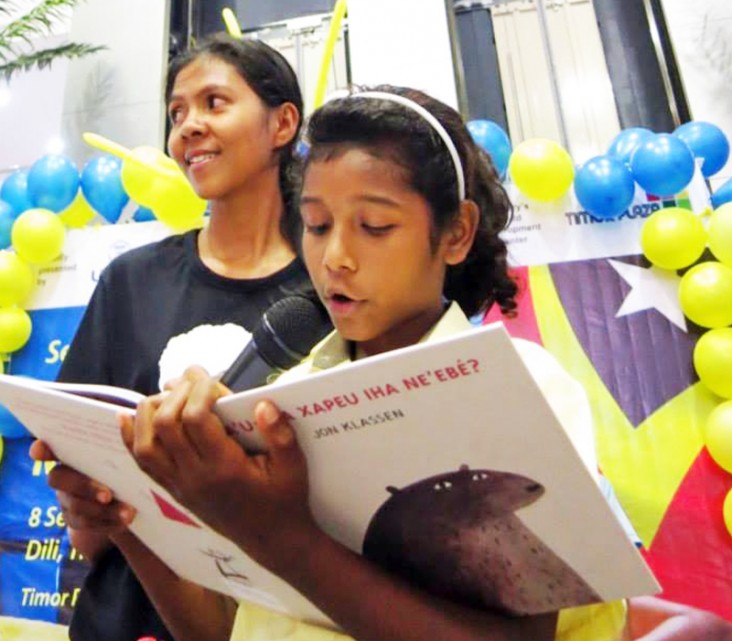|
Purpose: To improve early childhood literacy through innovative literacy booklets and teaching and reading aids for teachers and parents. |
Location: Nationwide |
|
Partner: The Asia Foundation Sub-grantee: The Alola Foundation and Institutu Mary Mackillop (IMM) |
Duration: September 2012 – December 2014
|
|
Cooperative Agreement: $300,000.00 |
Background:
Timor-Leste, the world’s third newest democracy, has conducted seven free and fair elections since independence in 2002. While the country has made a number of significant gains in governance, legislative reform, building state institutions, and citizen responsiveness, the Government of Timor-Leste (GOTL) continues to face considerable challenges. These include weak institutional and human capacity of government institutions, extreme dependency on the state’s petroleum fund, and high rates of poverty, unemployment, and illiteracy. Education in Timor-Leste is at a critical juncture, with opportunities for groundbreaking and desperately needed progress in child literacy. A 2009 World Bank survey indicated that 70% of grade 1 Timorese students were unable to read a single word of a simple text passage randomly selected in either of the country’s official languages, Portuguese or Tetun, while 40% of grade 2 students and 20% of grade 3 students were unable to perform the same.

Summary:
USAID's All Children Reading project combines innovative teacher training techniques with new Tetun-language educational materials. These teaching techniques and educational materials equip teachers with the skills and tools necessary to effectively teach young children to read. All Children Reading seeks to improve children’s literacy and numeracy outcomes by enhancing access to relevant teaching and learning materials. In addition, All Children Reading supports related government agencies in decision-making and future planning to improve education statistics in Timor-Leste.
USAID’s All Children Reading has three major components:
- Production of literacy resource packs;
- Development of innovative visual training aids for teachers to demonstrate ways to utilize new materials to best facilitate children’s learning and reading needs; and
- Outreach to parents to familiarize them with the importance of continued education of their children and academic nurturing at home.
In 2013, USAID’s All Children Reading has reached the following remarkable milestones:
- Completion of the first-year training for 31 primary school teachers to improve their teaching methods and skills. Participants were equipped with skills to enhance children’s and young reader’s interest in reading. In addition, the teachers developed curriculums to go back and train more people in their institutions using the knowledge and resources they received in the training.








Comment
Make a general inquiry or suggest an improvement.